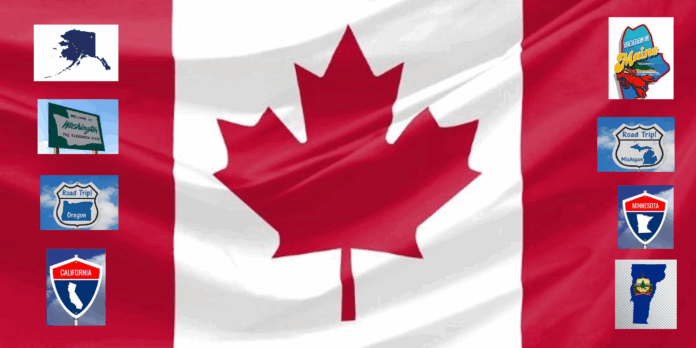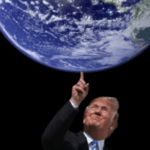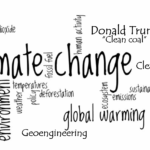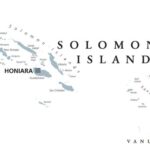Donald Trump wants to annex all of Canada and make it the 51st state. He wants to buy Greenland from Denmark. He wants to take back the Panama Canal Zone. And recently, he has announced a plan to redevelop the Gaza Strip to make it the equivalent of the French Riviera with or without Palestinians.
Trump’s Manifest Destiny for America smacks of 19th-century imperial ambitions, which shouldn’t be a surprise since he is a big fan of William McKinley, America’s 25th President. Trump is so much a fan that he has recently renamed Alaska’s Mt. Denali to give it its old name, McKinley.
Who was McKinley? He was the last imperial President. After him, when America went to war, it was to liberate countries rather than conquer them. During McKinley’s presidency, America’s false flag story about the Spanish blowing up its warship, The Maine, in Havana harbour led to the Spanish-American War and the seizure of Puerto Rico, Guam, Samoa, the Philippines, and Cuba.
McKinley also annexed the independent Kingdom of Hawaii. He quarrelled with Britain and Canada over the border between Alaska and Canada at the time of the Klondike Gold Rush.
The McKinley administration studied the building of a canal across the Central American isthmus. After his assassination in 1901, his successor, Theodore Roosevelt, who had served in Cuba (San Juan Hill), backed an insurrection in the nation of Colombia to carve off a piece that became Panama, with the U.S. given the rights by the new state to the Canal Zone. Roosevelt eventually withdrew America’s troops from Cuba, the last of America’s conquests in the Western Hemisphere.
Trump, however, appears to be out to acquire more real estate for America in North America and elsewhere. Opposing him, however, are a growing number of Americans and U.S. states. A poll done recently notes that the majority of Americans of all political stripes believe Trump isn’t kidding in stating his ambitions to grow the country. Yesterday, Canada voted federally with a message to Trump that the country is not for sale or conquest.
Trump’s acquisitiveness has made me think about a recent vacation my wife and I took to the Bahamian island of Exuma. There, we met many Americans who asked if they could become Canadians or if their state could join us. Some were joking. Some were apologetic, and some were sincerely interested in becoming part of Canada.
What would it take for an American state to join Canada? A third term for Donald Trump might just do it. His presidential overreach that has American state governments lining up with court challenges might do it as well.
The U.S. Constitution, currently, under its 14th Amendment, does not allow an American state to secede. This Amendment was added to the Constitution after the American Civil War.
If Trump’s tendencies continue, however, I suspect several American states will start exploring ways to get around the 14th Amendment just as Trump is trying to reverse the 22nd Amendment prohibiting him from a third term in 2028.
Recent polls in the U.S. show that 20% of Americans, when asked, would favour joining Canada. Based on this, I tried to imagine which states might want to become Canadian provinces and what that hypothetical realignment might look like. Rather than Trump annexing Canada, the reverse would occur with American states joining the True North Strong and Free.
Here are my top 8 future Canadian provinces:
-
Michigan – with Trump’s tariffs on cross-border trade affecting the auto industry, the state that is most impacted is Michigan. The Detroit-Windsor crossing is the busiest trade corridor in North America. Michigan and the province of Ontario have an integrated automobile manufacturing ecosystem. Michigan imports energy from Ontario. This interdependence with Canada makes it the leading candidate to become Canada’s 11th province.
-
Vermont – has demonstrated a streak of independence and similar political and social values to its Canadian neighbours. Just look at Senator Bernie Sanders and you can see how Vermont most closely aligns with its neighbour to the north which shares with it a common border. That makes it a slam dunk to become Canada’s 12th province.
-
Maine – Quebecers have been making Old Orchard Beach near Portland a summer home for almost a century. Meanwhile, Campobello Island, a part of New Brunswick, can only be accessed by bridge on a road going through Maine. Campobello, alone, illustrates the cultural, economic, geographic and political ties between Maine and its neighbouring Maritime provinces. So why not make Maine Canada’s 13th province?
-
Alaska – If Greenland and Canada can join the U.S., why not have Alaska join Canada? Alaska shares its entire border with Canada. It is geographically and politically isolated from the lower 48 states. An American driving to Alaska goes through Canada. Alaska’s indigenous peoples share a common history with related communities in the Yukon, Northwest Territories, and British Columbia. When you consider the senior United States senator from Alaska, Lisa Murkowski, a Republican, who is frequently opposed to Trump initiatives, Alaska sounds like Canada’s 14th province.
- Minnesota – Lying next to Ontario and Manitoba with a lot of shared cultural ties, geography and history, Minnesotans display social values akin to Canadians. The state is also very cold in the winter, talk about being Canadian. Then there is hockey, which Minnesotans have gravitated to, making them more Canadian than American anyway. What a natural candidate to become Canada’s 15th province, wouldn’t you agree?
-
The Big Pacific Coast Three – More than 33% of California, Oregon and Washington residents, when recently polled, indicated they would support joining Canada. These three have more in common with Canada than with the policies of Trump and his Republican acolytes in D.C. Point Roberts, a small American enclave that lies south of Vancouver, British Columbia, is in the state of Washington but only reachable over land by driving through Canada. Just erase that border. Then there is Oregon’s coastal beauty, which is as close to Vancouver Island’s Tofino scenery as you can get. And as for California, it is the most progressive of American states and has more Canadian expats living and working there than anywhere else in America. So, that’s my reason for these three to become Canada’s 16th, 17th and 18th provinces.
Think of it, no “artificial line” will separate these 8 states from Canada. No tariff wars would ensue. All 8 would get Canadian universal healthcare.
Canada would have access to cities that could join the Canadian Football League rather than play in the NFL.
And finally, most of the Canadian hockey players currently playing on teams in cities in these states would no longer need a passport to come play on Canadian turf.
How’s that for a realignment of North America in the 21st century?









